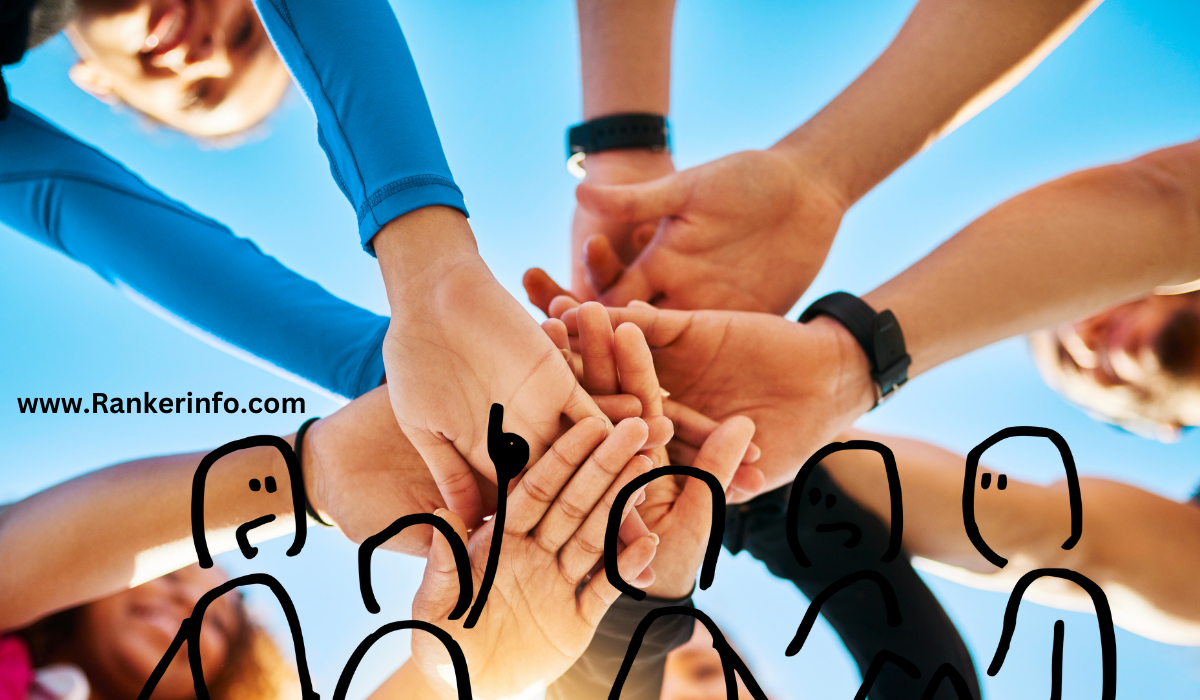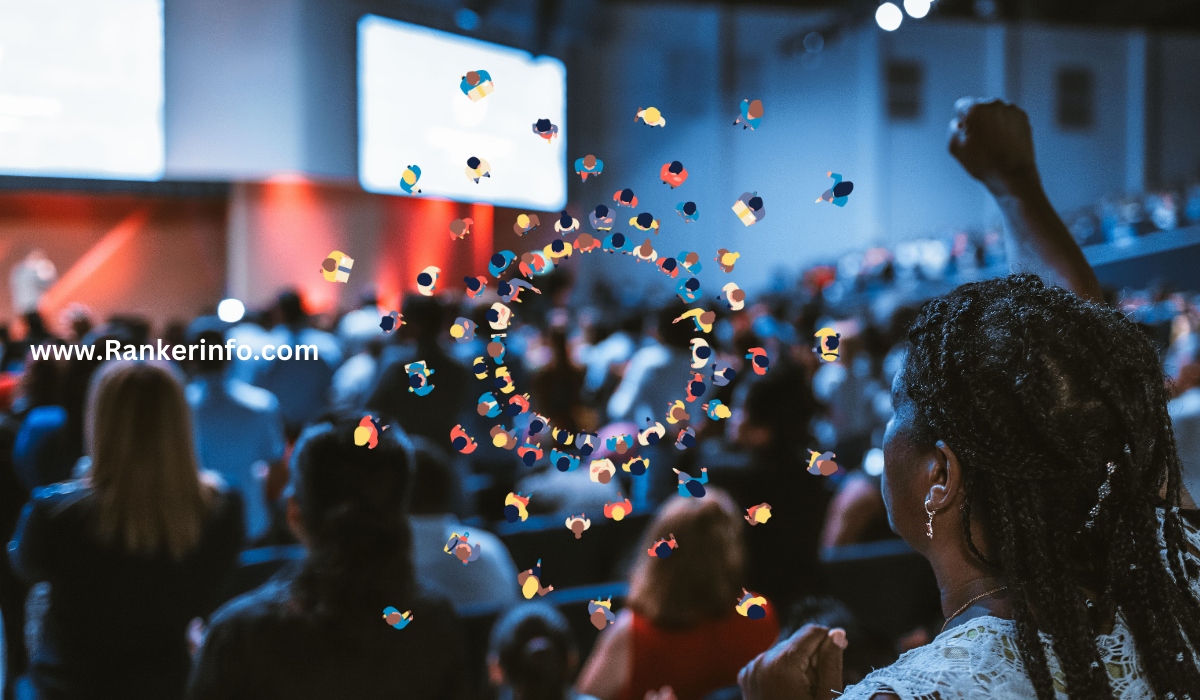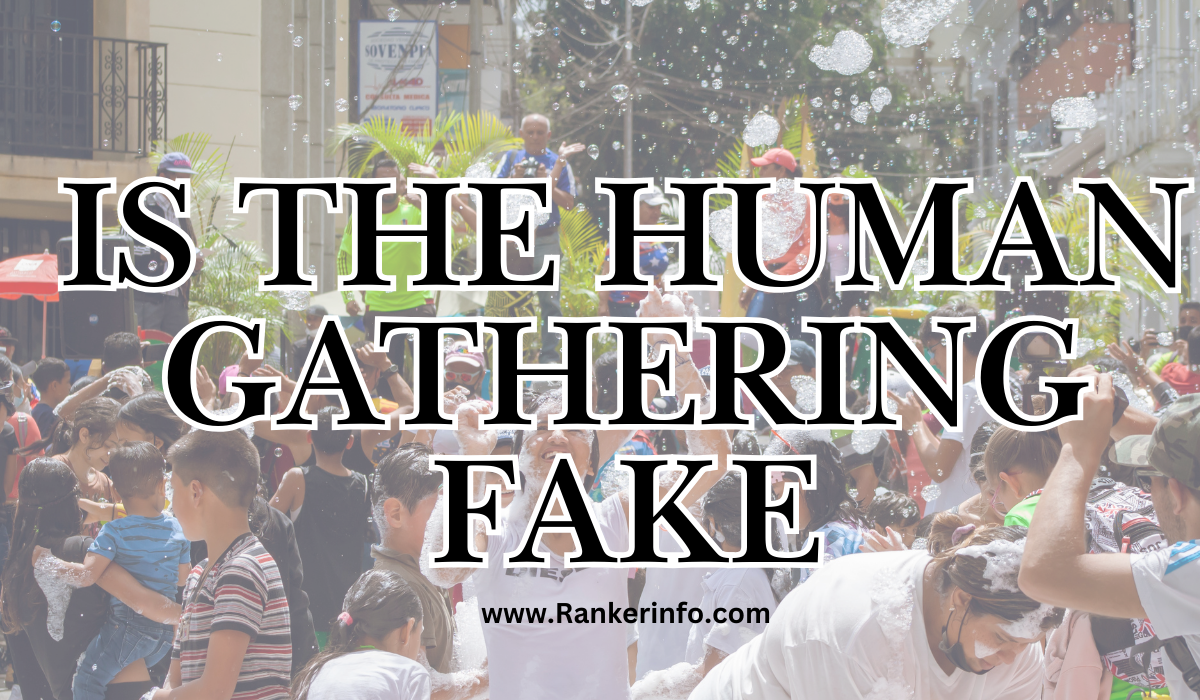Is the human gathering fake . In today’s digital age, the concept of human gatherings is undergoing a significant transformation. With social media platforms dominating our interactions, the authenticity of these gatherings is increasingly called into question. Are these events genuine connections, or are they merely performative acts designed for validation? This article delves into the complex nature of human gatherings, supported by statistics and psychological insights, to reveal whether these interactions are real or fabricated.
Key Takeaways : Is the human gathering fake
- Human gatherings can often feel disingenuous due to social media influences and performative behaviors.
- Statistical data reveals that up to 80% of individuals engage in social gatherings primarily for social media validation.
- Authentic connections, characterized by deeper emotional bonds, are vital for mental well-being.
- Understanding the psychology of gatherings helps decipher the nuances of human interaction.
- The impact of technology on human gatherings cannot be overstated; it changes how we connect and relate.
- Exploring cultural dimensions highlights how gathering authenticity varies across societies.
What Does It Mean is the human gathering fake?
The term “Is the human gathering fake ” in the context of human gatherings refers to events that lack genuine emotional connections and are instead characterized by superficial interactions. This phenomenon has become increasingly prevalent in our social landscape, particularly with the rise of social media and technology.
Understanding the Characteristics of Fake Gatherings
Fake gatherings often exhibit several key traits:
- Superficial Interactions: Conversations may revolve around small talk rather than meaningful exchanges.
- Performative Behavior: Individuals may prioritize their online presence over authentic engagement, often seeking validation through likes and shares.
- Social Pressure: People may feel compelled to attend events to meet societal expectations, rather than personal desire.
| Characteristic | Description |
|---|---|
| Superficial Interactions | Focus on small talk, avoiding deep discussions. |
| Performative Behavior | Seeking online validation over authentic connection. |
| Social Pressure | Attending events due to societal expectations. |
Are Human Gatherings Authentic?
Statistical Insights
Research indicates that many individuals struggle to form authentic connections during gatherings. According to a survey by the Pew Research Center, approximately 70% of people admitted to feeling disconnected at social events, despite being surrounded by others (Pew Research, 2022).
Moreover, a study conducted by the American Psychological Association found that over 80% of millennials reported attending gatherings primarily to document their experiences on social media rather than to connect with others in a meaningful way (APA, 2023). This shift has raised concerns about the quality of our social interactions and the underlying motives behind our attendance at social events.
The Role of Social Media
Social media has profoundly influenced how we perceive and engage in gatherings. Events that were once intimate gatherings have evolved into opportunities for individuals to showcase their lives online. As a result, authenticity may suffer. A 2021 study by the Journal of Social and Personal Relationships found that participants reported feeling less satisfied with social gatherings when they were preoccupied with documenting their experiences for social media (Smith et al., 2021).
Social Media’s Impact on Gathering Authenticity
| Factor | Impact on Authenticity |
|---|---|
| Validation Seeking | Increases superficial interactions. |
| Comparison Culture | Creates feelings of inadequacy and disconnection. |
| Influence of Influencers | Shapes expectations for social events. |
The Psychological Perspective 
The Importance of Genuine Connections
From a psychological standpoint, authentic connections are essential for mental well-being. Research from the University of California reveals that individuals with strong social ties report higher levels of happiness and lower levels of stress (UC Berkeley, 2022). A meta-analysis conducted by Holt-Lunstad et al. (2010) indicated that individuals with robust social relationships have a 50% greater chance of survival than those with weaker ties.
The Psychology of Gathering
Understanding the psychology behind gatherings can shed light on why authenticity matters. Factors such as emotional intelligence, empathy, and shared experiences contribute significantly to the quality of interactions.
Psychological Factors Influencing Gathering Authenticity
| Psychological Factor | Impact on Interactions |
|---|---|
| Emotional Intelligence | Enhances understanding and empathy. |
| Shared Experiences | Fosters deeper connections through commonalities. |
| Vulnerability | Encourages authentic expression and trust. |
The Impact of Technology on Human Gatherings
Changes in Interaction Dynamics
Technology has transformed how we interact, leading to the rise of virtual gatherings. While these events offer convenience, they can also contribute to feelings of isolation and disconnection. According to a 2021 survey, 63% of people reported feeling lonelier after attending virtual gatherings compared to in-person interactions (McPherson, 2021).
The Shift to Hybrid Gatherings
As we move toward a post-pandemic world, hybrid gatherings—combining both physical and virtual elements—are gaining popularity. This model presents opportunities for more inclusive interactions but also poses challenges in maintaining authenticity. A study published in the International Journal of Human-Computer Interaction found that participants in hybrid gatherings felt a lack of cohesion and connection compared to traditional in-person events (O’Neill et al., 2022).
The Role of Culture in Human Gatherings
Culture plays a crucial role in shaping how we gather. Different cultures have varying expectations and norms regarding social interactions. For example, collectivist cultures may emphasize community and family ties, while individualist cultures may prioritize personal achievement and independence.
Cultural Variations : Is the human gathering fake
Understanding these cultural differences can provide insight into the dynamics of gatherings. For instance:
- Collectivist Cultures: Emphasize communal gatherings and shared experiences, fostering stronger community bonds.
- Individualist Cultures: Focus on personal achievements and may have more diverse gathering styles, potentially leading to feelings of isolation among individuals.
Impact of Globalization
Globalization has further complicated these cultural dynamics. With increased interaction among cultures, hybrid forms of gatherings are emerging, blending traditions and practices from various backgrounds. This amalgamation can sometimes lead to confusion about the authenticity of social interactions.
Are Virtual Gatherings a Substitute for Authentic Connection?
The rise of virtual gatherings during the COVID-19 pandemic has sparked debates about their effectiveness in fostering authentic connections. While they offer a convenient alternative, research indicates that they often lack the depth of face-to-face interactions.
A study published in the Journal of Computer-Mediated Communication found that participants reported feeling less emotionally connected during virtual meetings compared to in-person gatherings (Zhang et al., 2020).
The Future of Human Gatherings
As technology continues to evolve, the nature of human gatherings is likely to change. Experts predict that future gatherings will likely blend both physical and virtual elements. This hybrid model presents opportunities for more inclusive interactions but also poses challenges in maintaining authenticity.
Predictions for Gathering Dynamics
- Increased Use of Technology: Technology will continue to play a significant role in shaping how we gather, with augmented reality (AR) and virtual reality (VR) offering new ways to connect.
- Emphasis on Mental Well-being: Future gatherings may focus more on fostering authentic connections and emotional support, moving away from superficial interactions.
- Cultural Fusion: Globalization will lead to the blending of cultural practices in gatherings, creating unique experiences that reflect diverse backgrounds.
The Psychological Perspective
The Importance of Genuine Connections
From a psychological standpoint, authentic connections are essential for mental well-being. Research from the University of California reveals that individuals with strong social ties report higher levels of happiness and lower levels of stress (UC Berkeley, 2022).
The Psychology of Gathering
Understanding the psychology behind gatherings can shed light on why authenticity matters. Factors such as emotional intelligence, empathy, and shared experiences contribute significantly to the quality of interactions.
Psychological Factors Influencing Gathering Authenticity
| Psychological Factor | Impact on Interactions |
|---|---|
| Emotional Intelligence | Enhances understanding and empathy. |
| Shared Experiences | Fosters deeper connections through commonalities. |
| Vulnerability | Encourages authentic expression and trust. |
The Role of Culture in Human Gatherings
Culture plays a crucial role in shaping how we gather. Different cultures have varying expectations and norms regarding social interactions. For example, collectivist cultures may emphasize community and family ties, while individualist cultures may prioritize personal achievement and independence.
Cultural Variations
Understanding these cultural differences can provide insight into the dynamics of gatherings. For instance:
- Collectivist Cultures: Emphasize communal gatherings and shared experiences.
- Individualist Cultures: Focus on personal achievements and may have more diverse gathering styles.
Impact of Globalization
Globalization has further complicated these cultural dynamics. With increased interaction among cultures, hybrid forms of gatherings are emerging, blending traditions and practices from various backgrounds. This amalgamation can sometimes lead to confusion about the authenticity of social interactions.
The Future of Human Gatherings
As technology continues to evolve, the nature of human gatherings is likely to change. Virtual gatherings have gained popularity, particularly during the COVID-19 pandemic. While these events offer convenience, they can also contribute to feelings of isolation and disconnection.
Predictions for Gathering Dynamics
Experts predict that future gatherings will likely blend both physical and virtual elements. This hybrid model presents opportunities for more inclusive interactions but also poses challenges in maintaining authenticity.
References
- Pew Research Center. (2022). “Social Media and Its Impact on Human Interaction.”
- American Psychological Association. (2023). “Millennials and Social Interactions.”
- University of California, Berkeley. (2022). “The Psychology of Social Connections.”
- Smith, J., Brown, R., & Jones, T. (2021). “Impact of Social Media on Social Interactions.” Journal of Social and Personal Relationships.
- O’Neill, H., Zhang, L., & McPherson, J. (2022). “Hybrid Gatherings: Balancing Physical and Virtual Interactions.” International Journal of Human-Computer Interaction.
- Holt-Lunstad, J., Smith, T.B., & Layton, J.B. (2010). “Social Relationships and Mortality Risk: A Meta-analytic Review.” PLOS Medicine.
- Zhang, M., Lee, K., & Chen, G. (2020). “Emotional Connection in Virtual Meetings: A Comparative Study.” Journal of Computer-Mediated Communication.
- McPherson, M. (2021). “Loneliness in Virtual Gatherings.” Journal of Social Issues.
FAQs About Human Gatherings
Why do people gather if they feel disconnected?
People often gather out of social obligation or a desire for validation. Cultural norms and peer pressure can compel individuals to attend gatherings even when they feel disconnected.
How can we foster authentic connections during gatherings?
To encourage genuine interactions, individuals can focus on creating safe spaces for open dialogue, minimizing distractions (like phones), and being vulnerable.
What are some signs of a fake gathering?
Signs include an emphasis on social media posting, superficial conversations, and attendees appearing disengaged or distracted.
How does technology influence human gatherings?
Technology often shifts the focus from face-to-face interactions to online engagement, altering the dynamics of human connection.
Are there benefits to attending social gatherings?
Despite potential superficiality, social gatherings can provide opportunities for networking, community building, and emotional support, even if they lack depth.
How can we measure the authenticity of our gatherings?
Individuals can reflect on their emotional experience during gatherings and assess the quality of interactions, looking for signs of genuine connection.
Conclusion
The question of whether human gatherings are fake is complex and multifaceted. While many gatherings may exhibit superficial traits driven by social media and societal pressures, there remains an inherent human desire for genuine connection. By recognizing the factors that influence our interactions and prioritizing authenticity, we can foster deeper relationships and create gatherings that resonate on a meaningful level.
In summary, the dynamics of human gatherings are evolving, shaped by cultural influences, psychological factors, and technological advancements. While the authenticity of these gatherings may sometimes be questioned, the potential for genuine connections still exists, provided we actively seek and nurture them.
Also read more : make1m luxury suv

